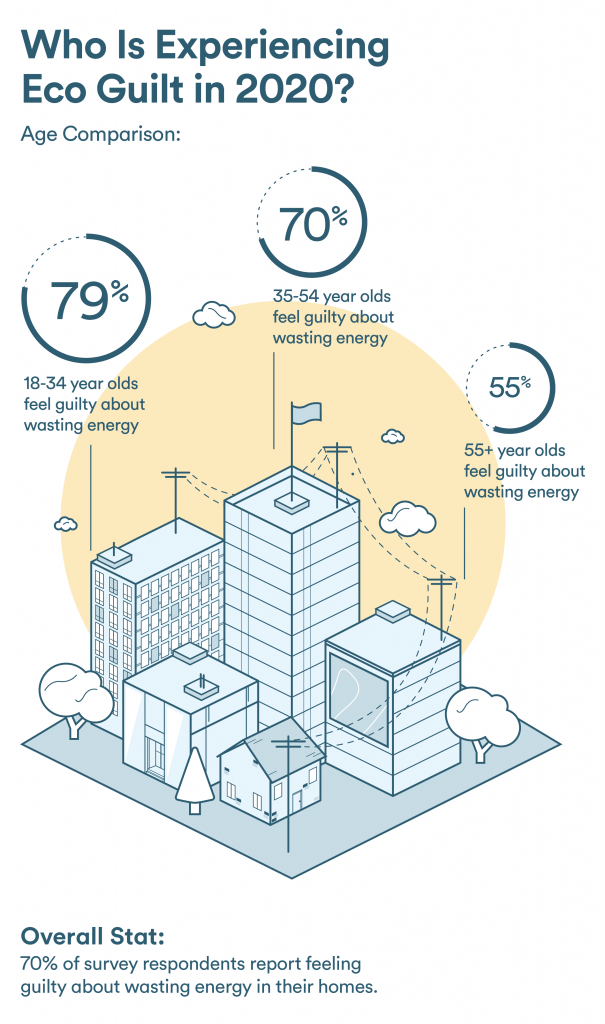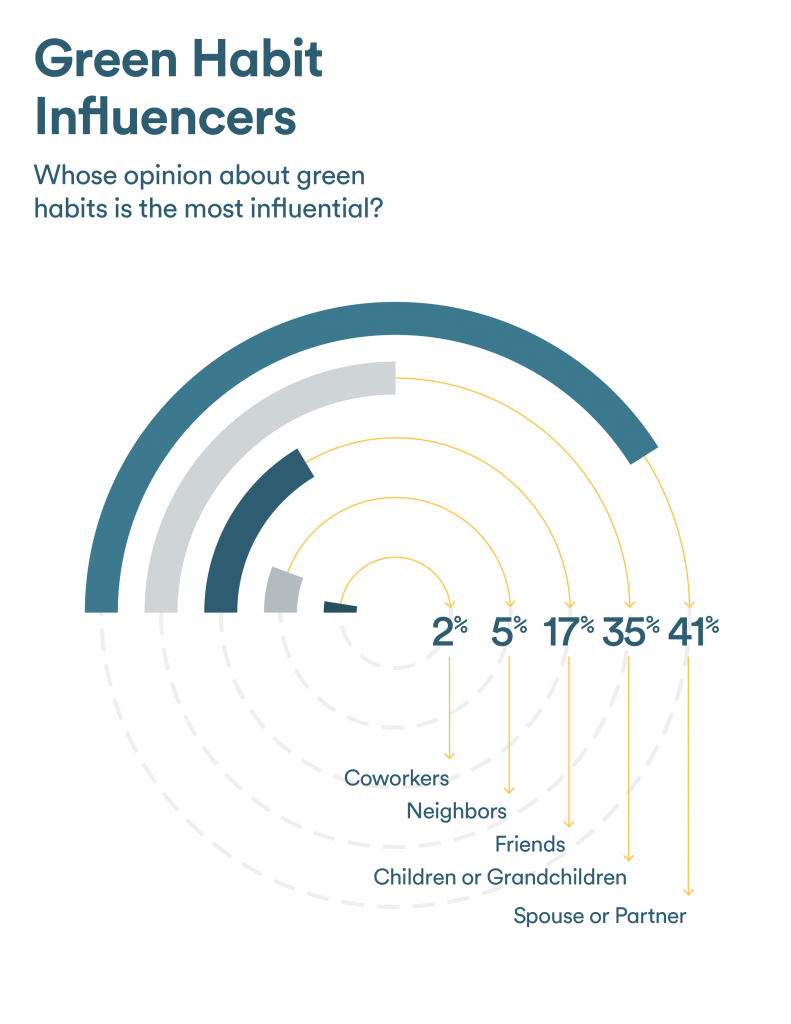As new emotions and problems arise that we have never had to think about before, our language adjusts to voice our newly discussed fears. So along with the new social media lingo and normie twitter jokes, we can add eco-guilt to the list of words younger generations are handling today.
Ecoguilt is “the feeling you get when you could have done something for the environment, but consciously made the decision not to”. It accompanies the knowledge that there are easily accessible alternatives and the burden that human-caused pollution and industry is affecting our environment in preventable ways. It affects those most often in affluent countries where there are affordable alternatives and where residents have the time, opportunity, and choice to make more environmentally friendly decisions. According to a survey conducted by Vivint.Solar in the United States, it is affecting the younger generations more than the other generations.
The Guilt Report: 2019 Edition has discovered that, of the 2,500 people of varying age and gender surveyed, 79 percent of 18 to 34-year-olds feel guilty about wasting energy. The percentage of feeling guilty decreases the older the participant, shown in the figure below. And the guilt is arising from different sources. Although one of the biggest fears of the climate crisis is access to freshwater, people feel the least guilty about wasting water, with wasting energy and recycling issues climbing above it in the poll.
Obviously, some of the questions proved to be more divisive than others. For instance, 70.8 percent of people felt guilty about throwing recyclables in the trash but when it came to using heating and cooling during different seasons, the percentage of those who felt guilty hovered between 47 and 49 percent. The report also highlighted the performative aspects of being seen by others as eco-friendly, suggesting that it does not play as big a part as some might think. Only half of the people surveyed stated that the knowledge that others were watching affected their eco-friendly behavior. Also, 70.9 percent of people answered that they do not feel the need to compare their carbon footprint to their friends.
So where do we draw our eco-inspiration from and perhaps the most pressure to be environmentally conscious? As shown by the image below, the largest influence comes from our spouses and partners, and the least from our co-workers.
The majority (54 percent) become increasingly stressed and feel guiltier because of news headlines and recent environmental reports. The youngest surveyed were the most affected.
But what can we do to handle our ecoguilt and eco-anxiety? While the headlines and the pressure to do right by future generations can lead to a healthier planet, the most important thing to do is to not feel helpless. We need to encourage one another to do what we can and learn from the experiences of others. What each of us can do will look different. It could mean setting up a community garden using only organic fertilizers and pesticides to provide food deserts with more organic and healthier options. It could mean researching more effective ways to use water in your community and investigating the personal impact of lowering federal environmental standards. It could mean teaching your child’s elementary class about saving water when they are brushing their teeth or packing their lunch in reusable, recycled containers. It could mean voting in as many elections as you can and encouraging your neighbors to do the same through carpooling and volunteering. Whatever it looks like for you, do not forget to communicate your experiences to others, because you never know when you could become the inspiration to change someone else’s habits.
‘It is our collective and individual responsibility … to preserve and tend to the world in which we all live.”To see the full survey conducted by Vivint.Solar, check out the results here and their analysis here.
Dalai Lama





This is true fact!
ReplyDelete